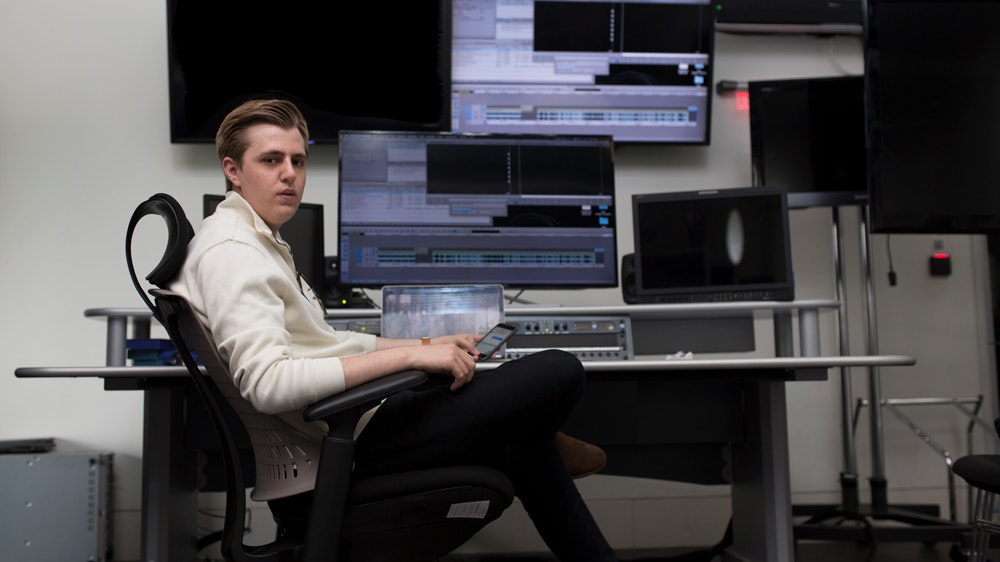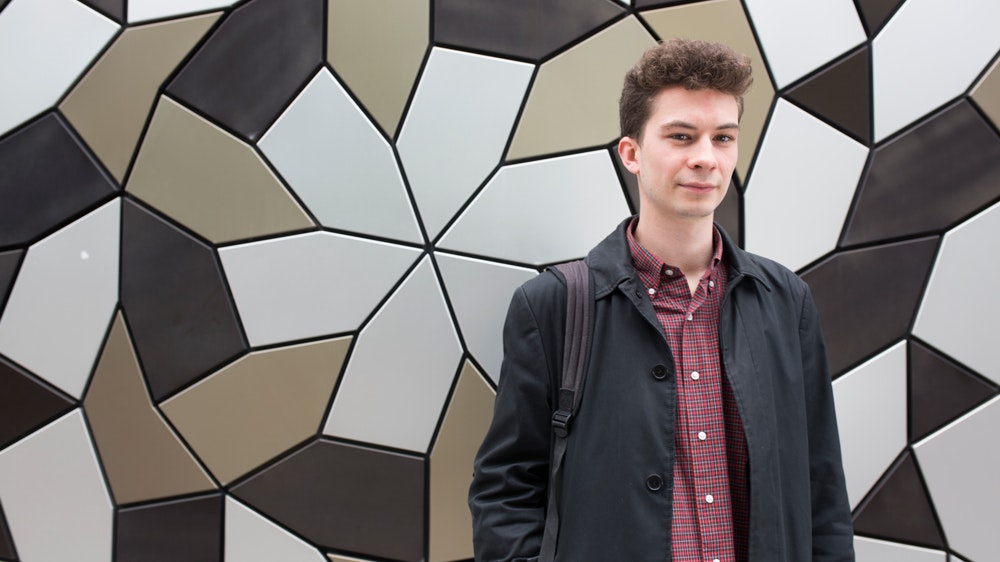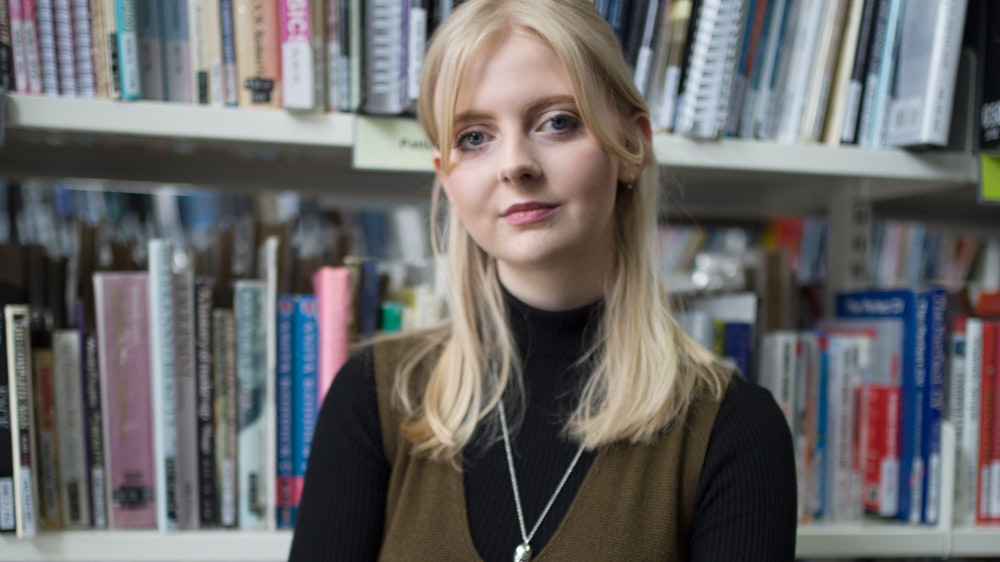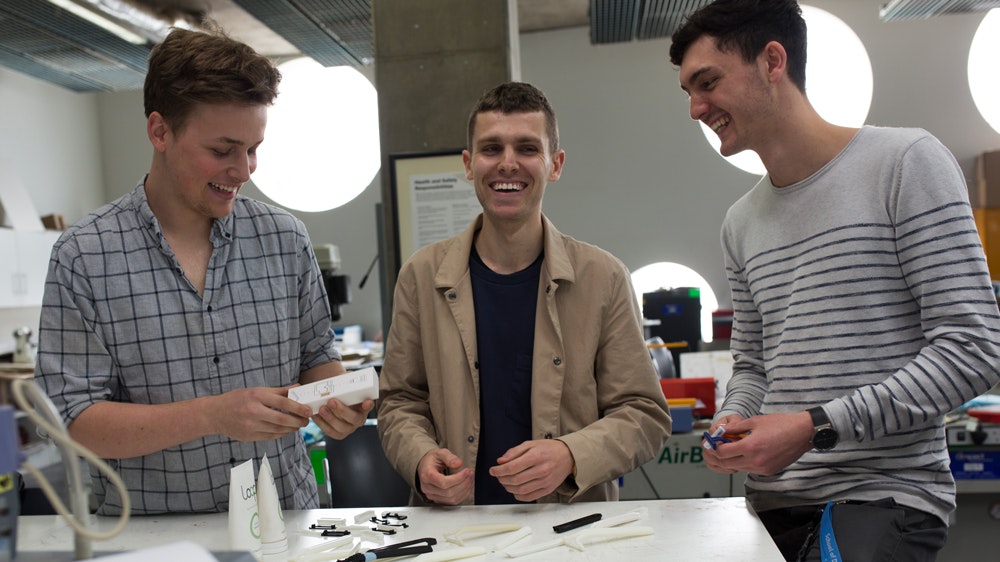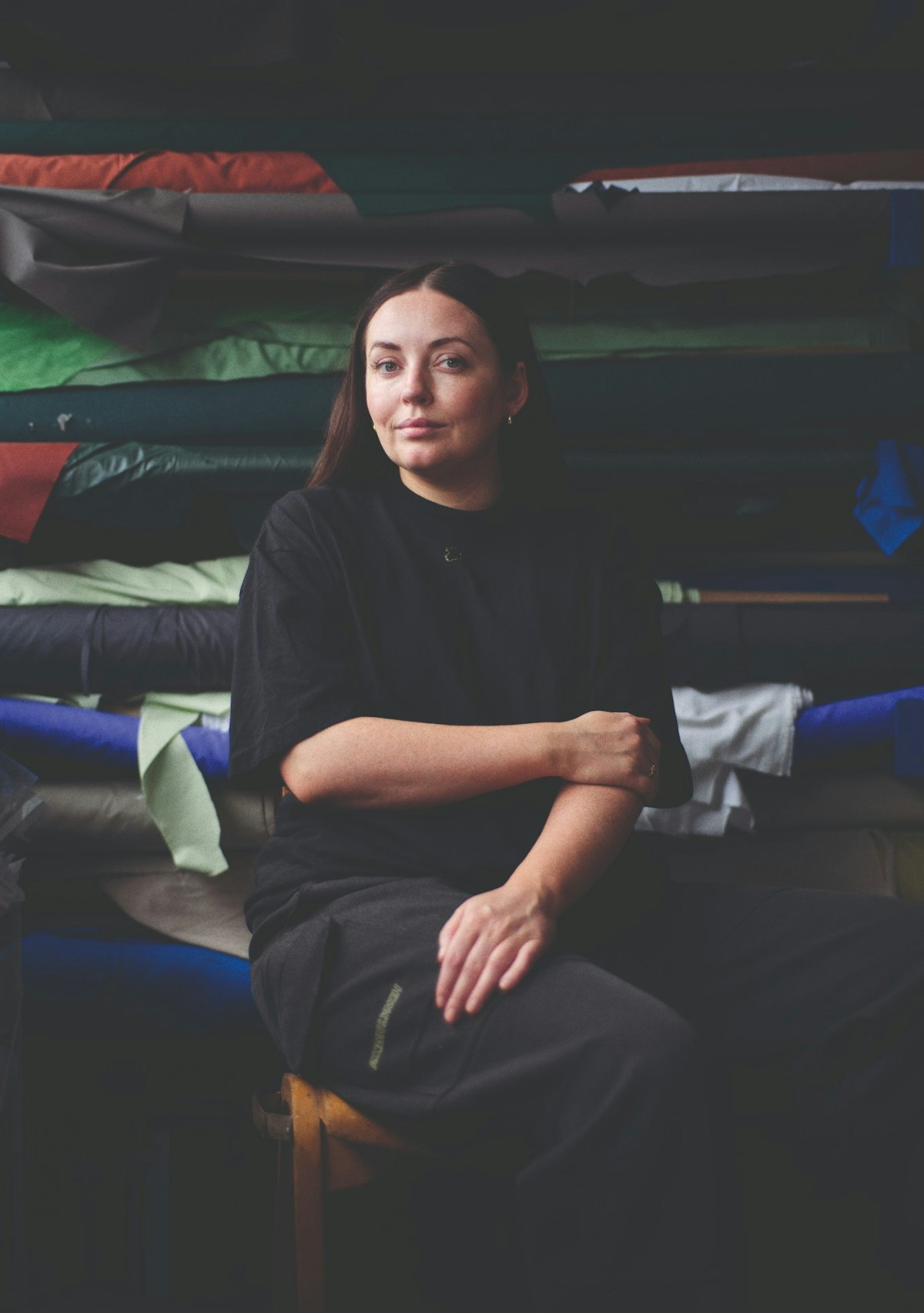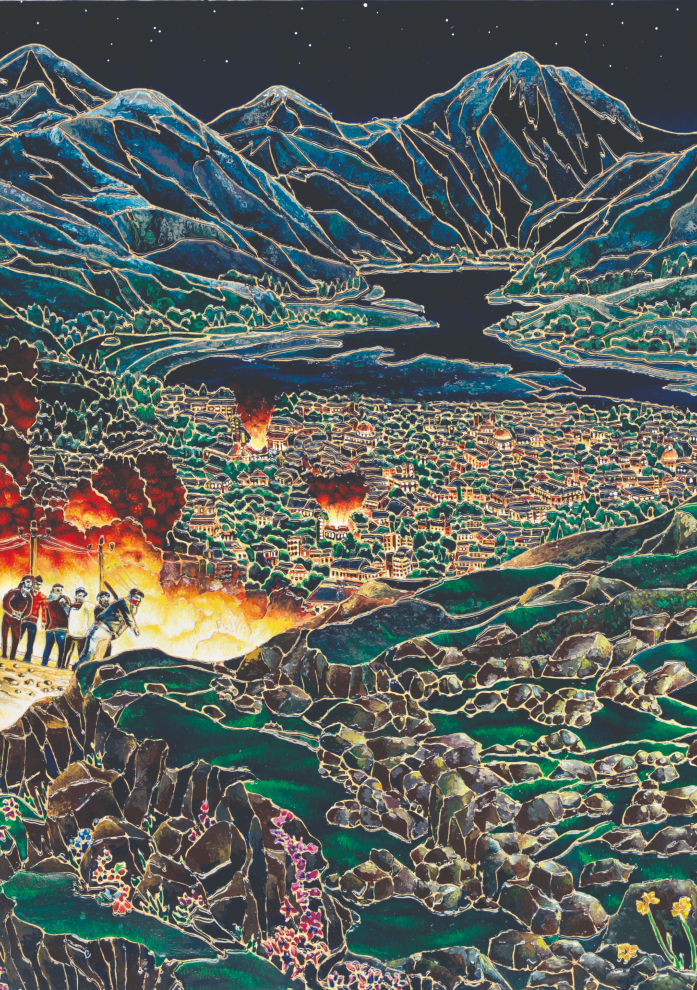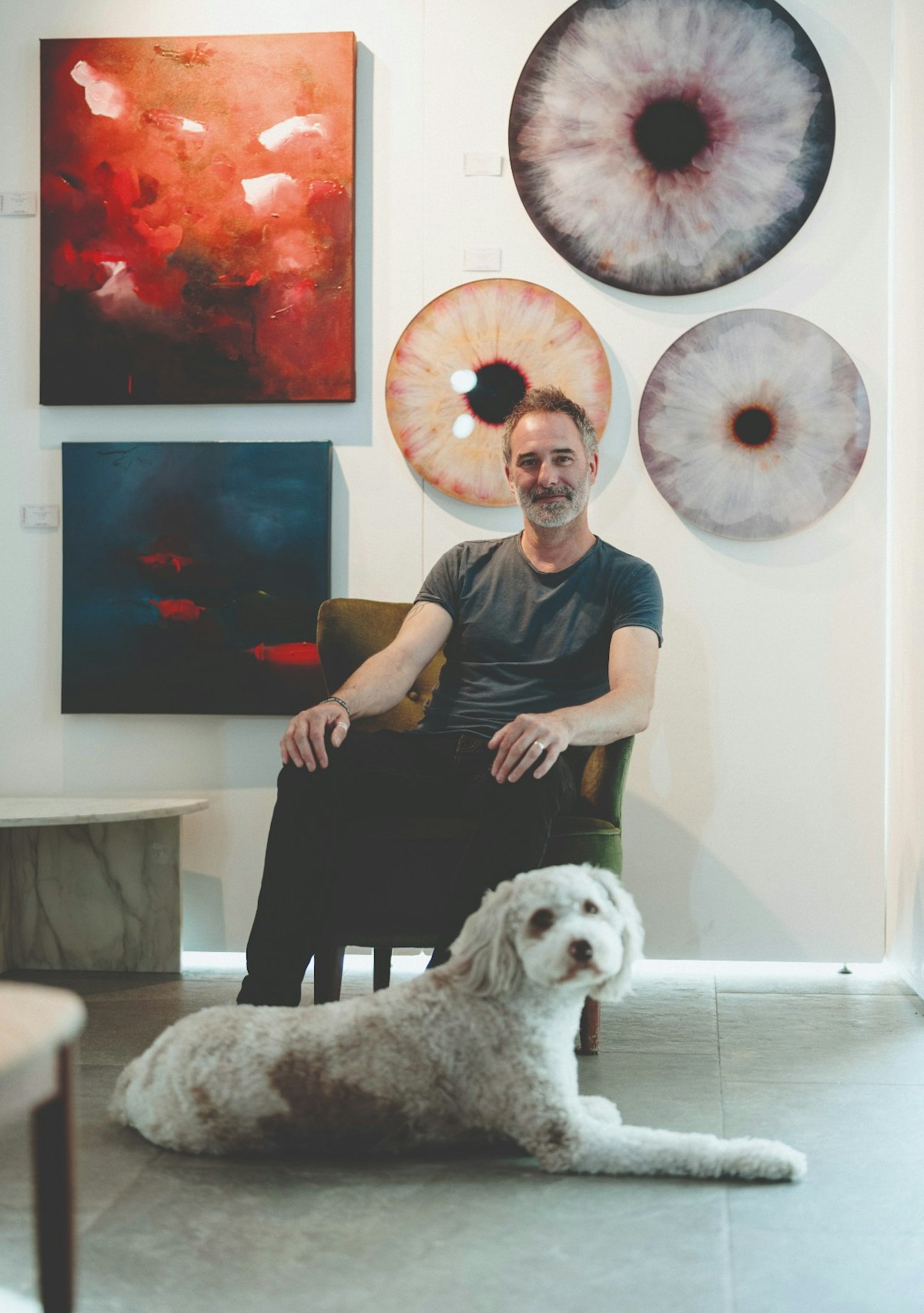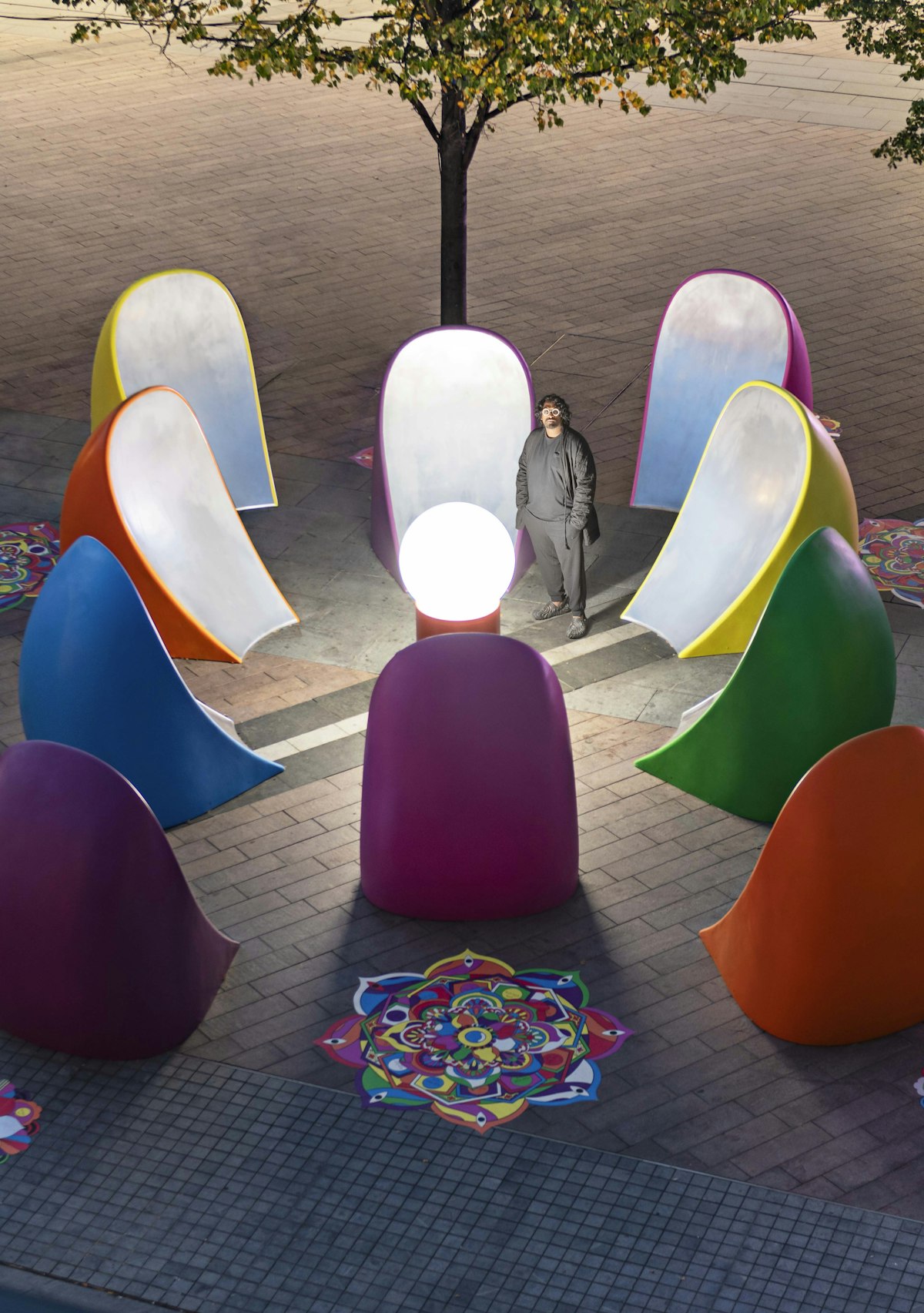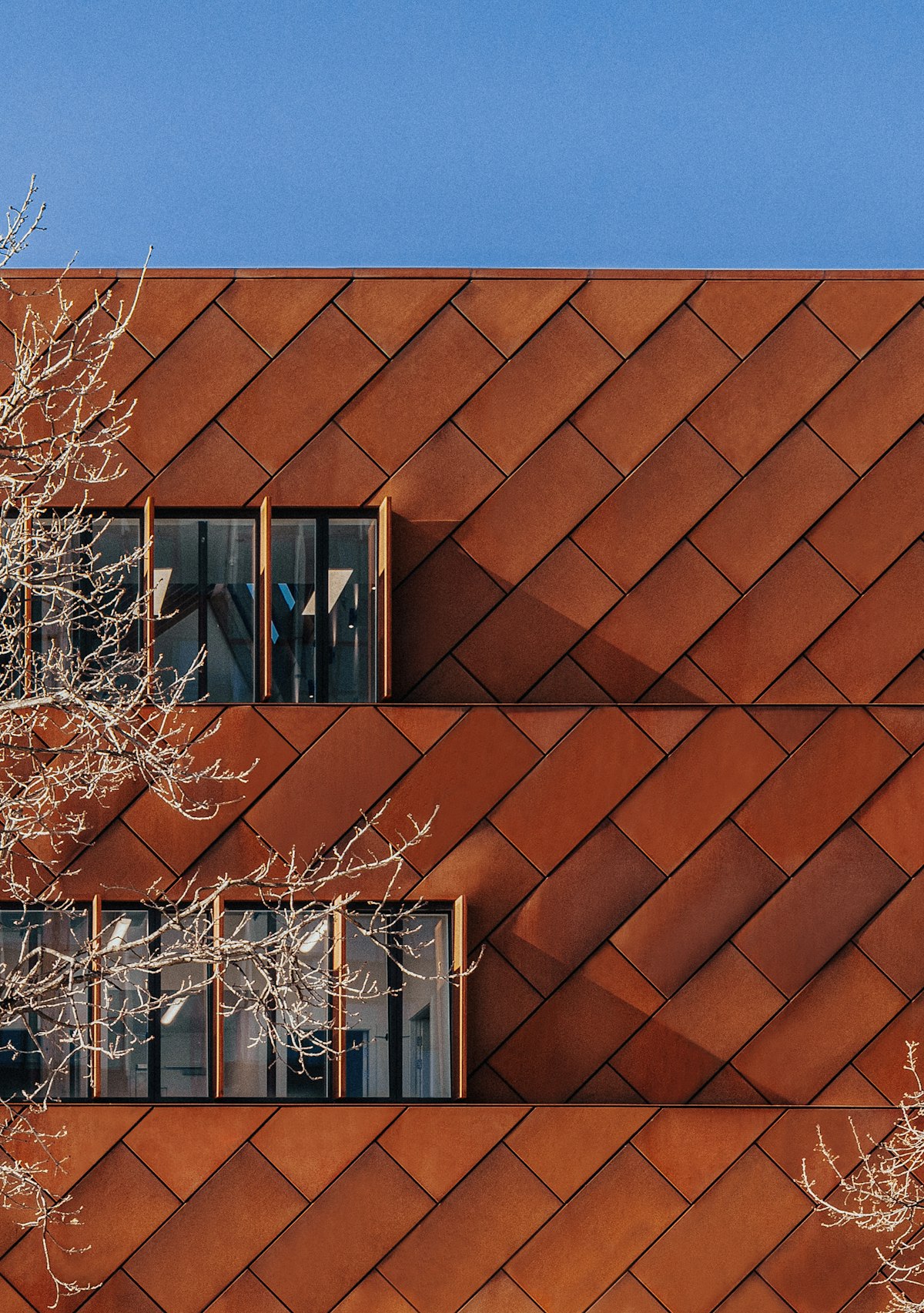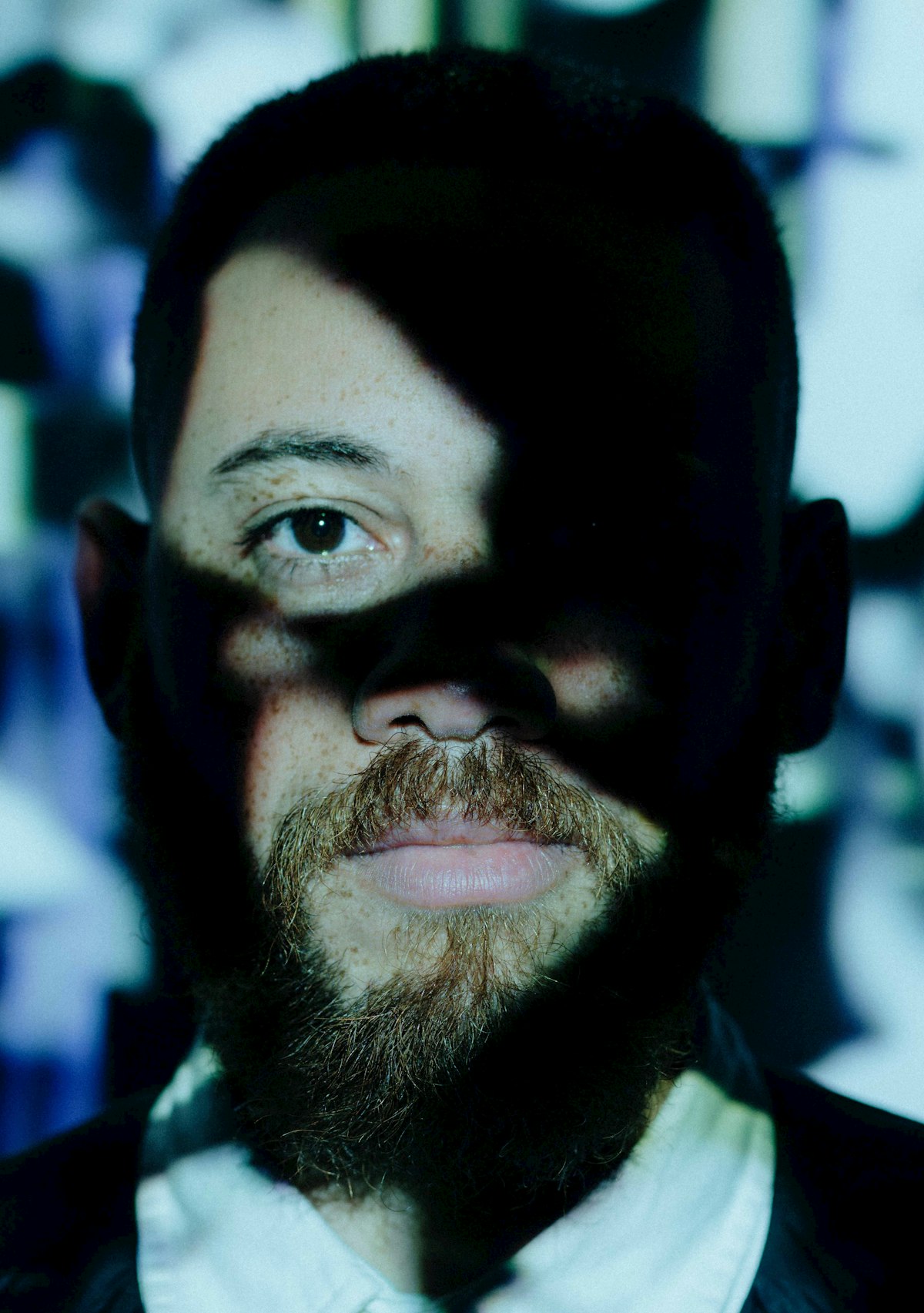
Next. Big. Things.
The thing with ideas is they’re not much good left rattling about in one’s head. Their worth lies in teasing them out, nurturing them and making them real, tangible, relevant and meaningful.
That’s how your iPods and Teslas and Alexas are made. That’s how Google and Facebook and Uber come to be. But it takes guts and a lot of work and an army of very determined people to make it happen. And this is where Ravensbourne comes in.
The Peninsula’s very own digital media and design college see themselves as “champions of creativity and collaboration” as well as “innovative and industry-focused”. The Peninsulist met some of 2017’s soon-to-be graduates to discuss their work and the future.
Joe kidd: the future film director
Not content with co-writing, directing and crowd-funding his third-year project, Joe Kidd also managed to secure the talents of established film and television actors, Clive Russell (Game of Thrones, Ripper Street) and Daniel Garcia (Forever Tomorrow). His film Displaced was shot predominantly on the Peninsula, and centres on John, a rough sleeper who, following an assault, decides to rebuild his relationship with his son.
With his film wrapped up, Joe will be exhibiting at Ravensbourne’s Degree Show this summer and submitting his film to both national and international film festivals.
“Over the last ten years there’s been an influx of innovation, from YouTube to everyone having a great quality video camera in their pocket. I think the next big innovation will be home streaming or same day release, where you’d have the option to pay a little more and watch the latest blockbuster release in the comfort of your own home. As well as increasing profits it would also cut down on piracy.”
“Over the last ten years there’s been an influx of innovation, from YouTube to everyone having a great quality video camera in their pocket.”
Jed maiden: the placemaker
Fiercely passionate about community focused projects, Jed is about to graduate with a BA (Hons) in Architecture. His project, The Ark, is about giving a new lease of life to Bethnal Green’s industrial gas towers. Currently at risk of demolition, Jed’s proposal is to repurpose the iconic towers into an adaptable community site, which would include facilities for staging concerts, as well as parkland and other areas that encourage communities to get together. He was intrigued by the gas towers’ history, their abandonment and the way they polarise opinions of taste.
His idealism is balanced by an understanding that as well as preserving London’s industrial heritage and bolstering the live music scene, the project would also need to be commercially viable in order to survive. It’s a pioneering yet realistic approach to large-scale architecture.
“Physical community spaces are more relevant than ever before. People need something of cultural relevance historically or symbolically they can relate to. It’s easy to blame our reliance on technology for the downfall of public interaction, but by trying to understand changing behaviours, like young people’s use of social media sites such as Snapchat, designers would be able to create meaningful public spaces. And because these trends change so rapidly, adaptability of the space should also be at the forefront of design.”
“Physical community spaces are more relevant than ever before. People need something of cultural relevance historically or symbolically they can relate to.”
Leah ward: the eco-fashion entrepreneur
Leah’s project, a store based on the idea of ‘slow fashion’ in central London, is an intriguing proposition. Graduating this year with a BA (Hons) in Interior Design and Environment Architecture, Leah is exploring the idea that consumers are becoming more eco-conscious in the way that they buy, rejecting ‘fast fashion’ brands and choosing more eco brands instead.
Leah’s ethical andsustainable approach to fashion will include hand-cut pieces made from sustainable high-quality fabrics in England. The slow approach would also allow a degree of personalisation. The third-year student has also designed a store with an innovative solution for targeting different clientele: one store, two entrances, each on a different street, attracting high-streetshoppers from one end and high-end shoppers from the other.
“Apparel-making is the third biggest polluter after oil. I believe that it’s important for people to be aware of the effects of the fashion industry and how we as consumers can do our part. And consumers are becoming more conscious about the way they buy, especially millennials."
“Researching the effects that fast fashion retail has on our environment shocked me and made me change the way I buy clothing. I think this is a problem that isn’t publicised enough so i hope that my work will bring awareness of the issue.”
Lewis calderwood, stefan benson and oscar lahiff: the re-use revolutionaries
While researching, in response to a Royal Society of Arts brief regarding “circular futures” — projects encouraging circular economy, or designing with an end life in mind — Lewis, Stefan and Oscar discovered this: we splurge on shaving gel and scrimp on razors. But with up to 2,000,000,000 disposable razors ending up in landfill sites each year in the US, they came up with an ingenious idea to facilitate change.
Their project ‘Loop’ is a sustainable shaving subscription service that converts disposable razors into material which is used to then 3D print a premium razor. The trio will soon be graduating with their BA (Hons) in Product Design and if this pioneering project is anything to go by, it’s safe to say employers won’t be wasting any time to snap them up.
“Fast-moving consumer goods (FMCG) play a huge part in waste and recycling. We were intrigued that the waste of these FMCGs had so much reusable material, and wanted to use this to show consumers the potential of their waste. 3D printing seemed a great fit. And it will only get faster and more affordable. On a domestic level it will allow people to create their own products and quickly build things specific to their own needs. In this sense, 3D printing has the potential to revolutionise DIY tasks.”
“3D printing has the potential to revolutionise DIY tasks”
The Show
The Ravensbourne degree show is on 21 – 23 June at Ravensbourne, Greenwich Peninsula. The show will showcase a new generation of creative talent from Ravensbourne’s undergraduate and further education courses.
